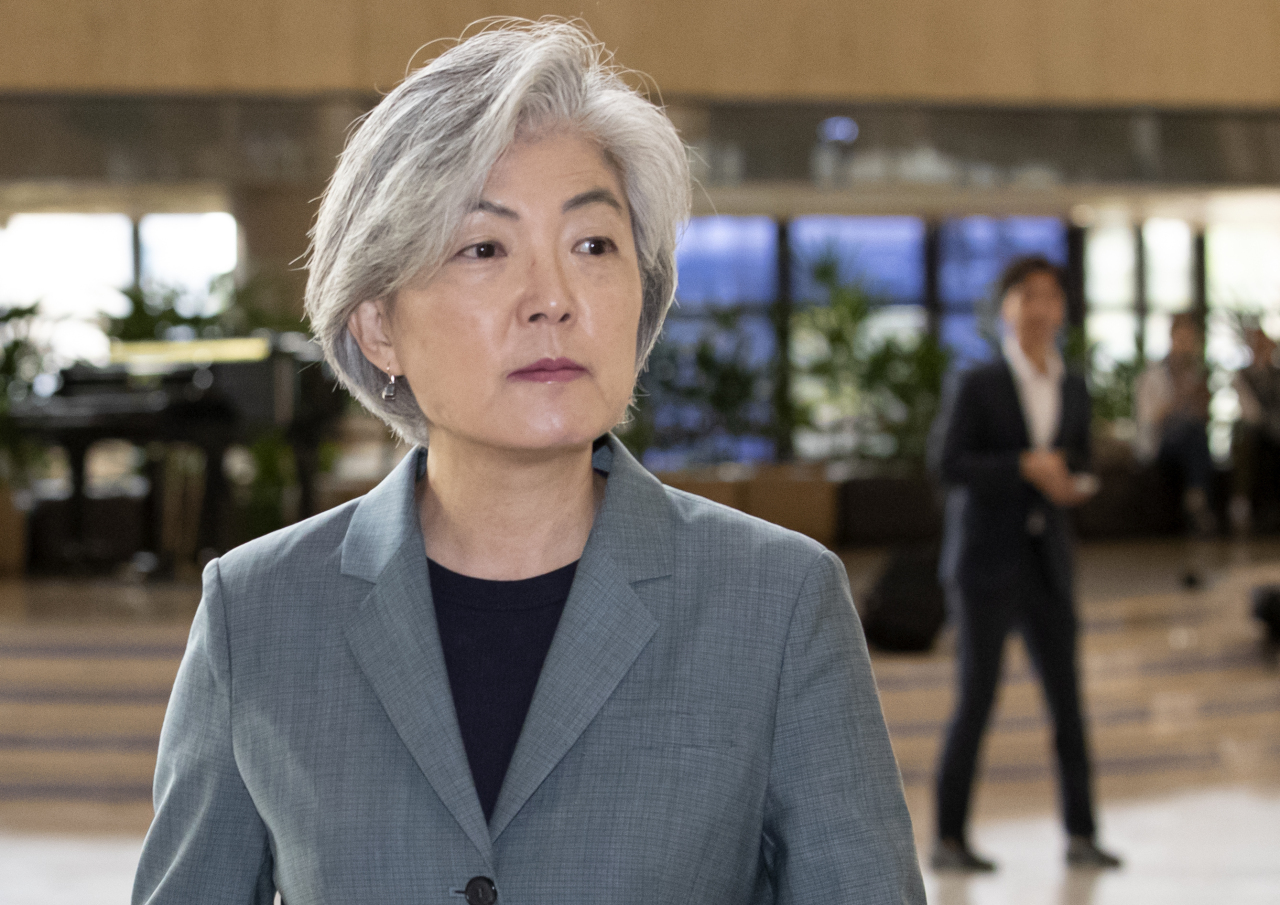South Korean Foreign Minister Kang Kyung-wha will meet her Japanese counterpart in China in another attempt to ease tensions with Tokyo after a diplomatic feud developed into a trade row and now threatens to weaken security cooperation.
Kang, Japanese Foreign Minister Taro Kono and Chinese Foreign Minister Wang Yi gathered in Beijing on Tuesday for the ninth in an ongoing series of trilateral foreign ministers’ meetings involving the top diplomatic officials of the three countries.
 |
Minister of Foreign Affairs Kang Kyung-wha heads to the departure hall at Gimpo Airport on Tuesday. (Yonhap) |
The Korean minister will hold one-on-one talks with Kono on Wednesday afternoon, weeks after their meeting in Thailand on Aug. 1, which left the two sides at a loss to bridge the considerable gap in views on causes and solutions for their simmering dispute.
Their meeting drew attention here as the two countries are at a crucial juncture, facing decisions that may influence their perilous relations. Saturday is the deadline for Seoul to decide whether to renew or annul its bilateral military information pact with Tokyo, called the General Security of Military Information Agreement.
Four days later, on Aug. 28, Japan is set to begin implementing its measures to remove Korea from a list of trusted trading partners eligible for streamlined customs procedures.
Before departing for Beijing, Kang said relations between the two countries were in a challenging situation, which has deteriorated since July when Tokyo placed controls on the export of three vital strategic materials to Korea. “I am prepared to actively explain our position related to Japan’s export restrictions, but the difficult situation lies heavy on me,” she told reporters at Gimpo International Airport.
In a meeting scheduled for half an hour, Kang and Kono will also discuss the rulings from South Korea’s top court that ordered Japanese companies to compensate Korean victims who were forced into labor during World War II. Seoul believes the trade controls are retaliatory actions to protest against the rulings. Japan asserts the compensation issue was settled in a treaty signed by the two countries in 1965.
With only four days remaining to make a decision on GSOMIA, she said nothing had yet been decided, leaving room for possibilities that may partly depend on the outcome of her meeting with the Japanese minister.
On Tuesday, a Cheong Wa Dae official said Seoul will take Japan’s forward-looking attitude and quantitative and qualitative evaluation of military information into account to come up with a conclusion on the intel-sharing deal.
On Wednesday morning, Chinese Foreign Minister Wang Yi will chair trilateral talks with Kang and Kono.
China reportedly is seeking to step into the dispute between the two neighboring countries out of fear that their row could jeopardize a China-led economic initiative, the Regional Comprehensive Economic Partnership, as well as the China-Japan-South Korea free trade agreement.
Chinese academics have called for China to play a more active role under “the multilateral trade framework to promote regional economic integration in Asia, and withstand potential shocks stemming from global protectionism,” China’s Global Times reported Sunday.
By Park Han-na (
hnpark@heraldcorp.com)






![[Herald Interview] 'Trump will use tariffs as first line of defense for American manufacturing'](http://res.heraldm.com/phpwas/restmb_idxmake.php?idx=644&simg=/content/image/2024/11/26/20241126050017_0.jpg)
![[Exclusive] Hyundai Mobis eyes closer ties with BYD](http://res.heraldm.com/phpwas/restmb_idxmake.php?idx=644&simg=/content/image/2024/11/25/20241125050044_0.jpg)
